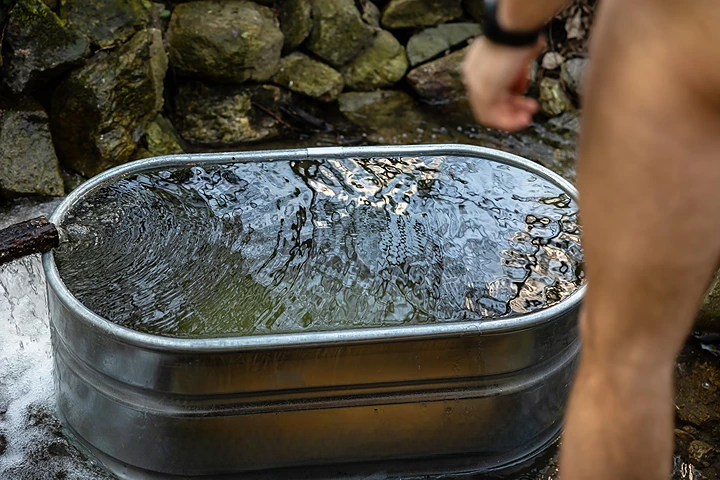The Ideal Cold Plunge Temperature for Beginners
Cold plunges are getting more popular, and for good reason—they help with recovery, reduce inflammation, and boost mental clarity.
In this article we shared beginner-friendly cold plunge tips to help you safely set up your first cold water immersion experience. One of the most common questions beginners ask is:
What’s the ideal temperature for a cold plunge?
The truth is, there’s no one perfect answer because it depends on your experience, comfort level, and goals. That said, there are some general guidelines to help you find what works best for you.

What’s the Best Temperature for a Cold Plunge?
There’s no one-size-fits-all to determine the ideal temperature for a cold plunge. But there are some general guidelines to help you find the right temperature for your needs. Here’s a few.
Start with warmer waters
If you’re just starting out, go for water temperatures between 50-59°F (10-15°C). This range is cold enough to give you the benefits but not so extreme that it’s unbearable. Your body needs time to get used to the shock of cold water, so there’s no need to rush.
Gradually lower the temperature
As you build tolerance, try bringing the water down to 45-50°F (7-10°C). This is a great middle ground where you’ll start to feel more of the benefits without pushing yourself too hard. Listen to your body: if you feel comfortable, continue to decrease the temperature in time.
Go even colder if you want to
If you’re experienced and really looking for a challenge, you can drop it further to 39-45°F (4-7°C). Anything below 39°F (4°C) is considered extreme and isn’t necessary for most people. Remember, colder isn’t always better—it’s all about what feels right for you.
In general, you should start on the higher end of the scale (50-59°F) and then gradually decrease the temperature or increase the plunging time as you adapt. Feeling a bit uncomfortable is normal, but you should always prioritize safety during cold plunges.
Advice for Plunging in Uncontrolled Water Temperatures
If you’re plunging in a lake, river, or any outdoor body of water where you can’t control the temperature, here’s how to stay safe and make the most of it:
- Check the conditions first: if the water feels extra cold, take a second to mentally prepare before jumping in.
- Time your plunge wisely: limit your immersion time based on the water temperature. If it’s below 50°F (10°C), start with 1-2 minutes and see how you feel. Gradually work up from there. Pay attention to how your body responds and exit if you feel too uncomfortable.
- Focus on slow breathing: slow, deep breaths help manage the shock and keep your body relaxed. Inhale, exhale. Keep it steady.
- Listen to your body: a little discomfort is normal, but if you feel overwhelmed, it’s time to get out.
Ready to Take the Plunge?
Figuring out the best cold plunge temperature is all about what works for you. Starting with 50-59°F (10-15°C) lets your body adjust before going colder. Some people love pushing limits, but you don’t need to hit extreme temperatures to see the benefits.
The key? Stay consistent, listen to your body, and enjoy the process.
Want to track your progress and see how your cold plunges improve over time? Download IceBuddy App and start logging your sessions today.
